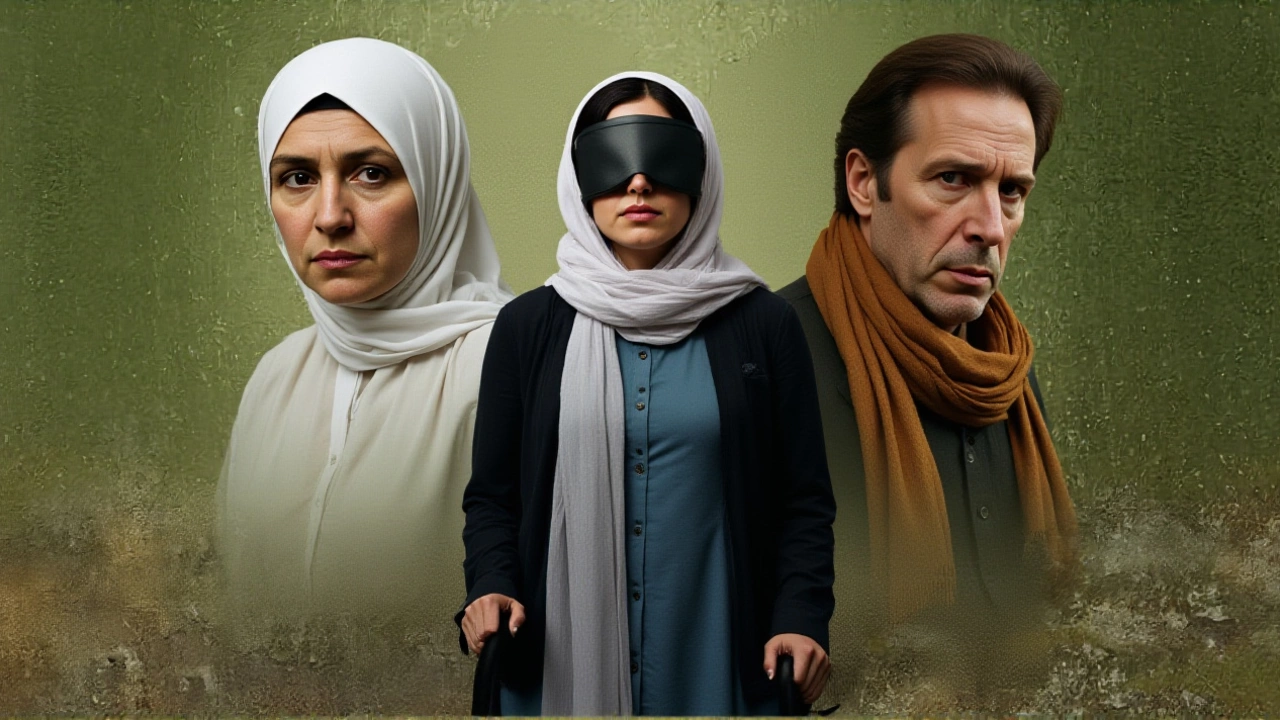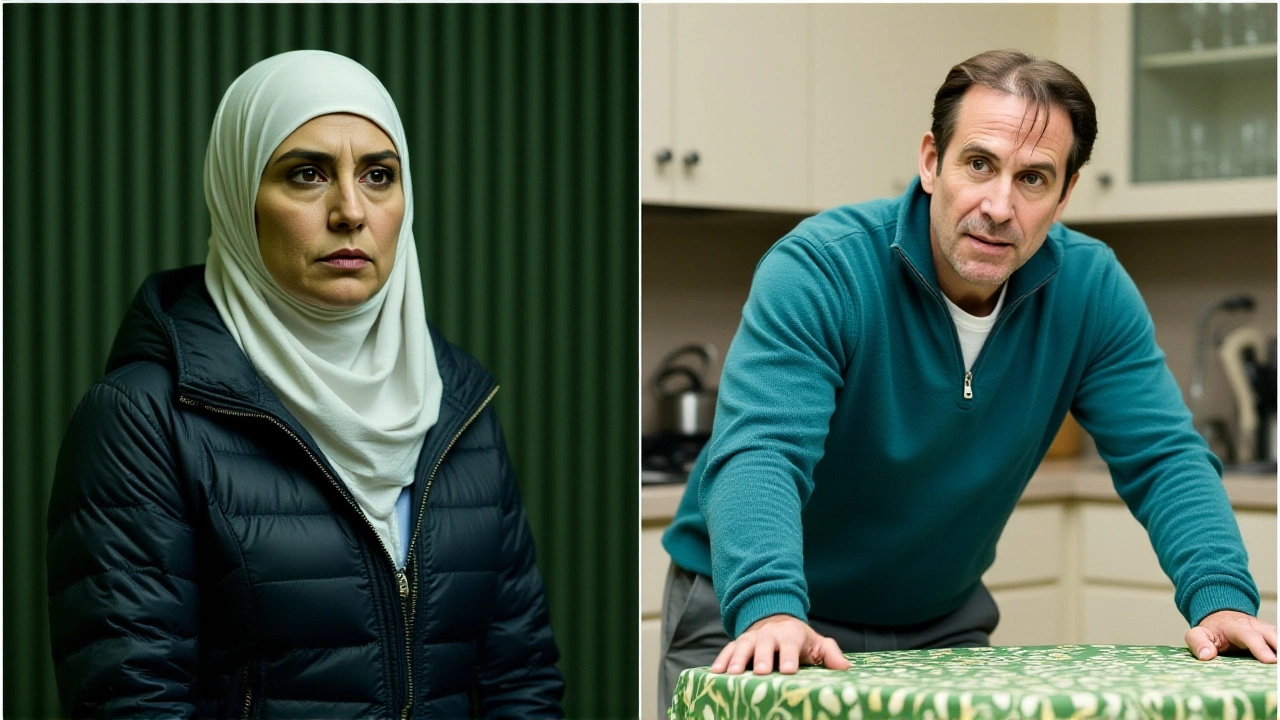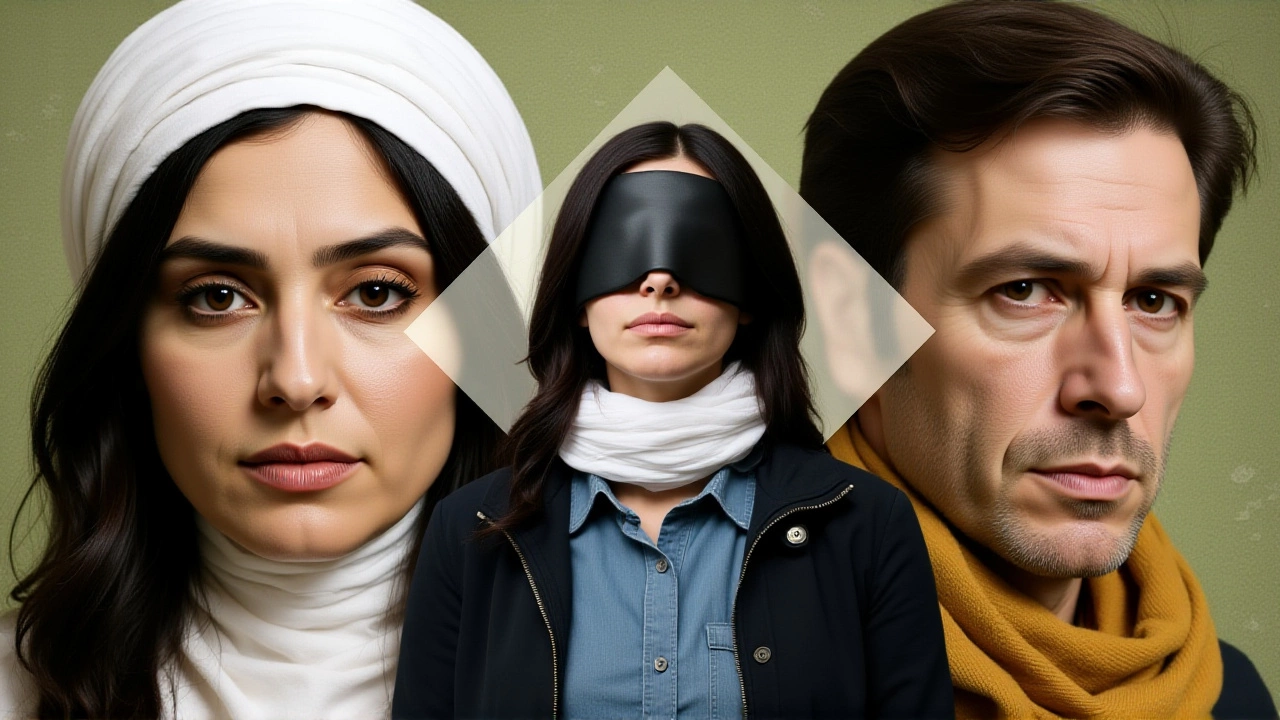BBC's 'Prisoner 951' dramatizes Nazanin Zaghari-Ratcliffe's 2,485-day imprisonment in Iran

Nov, 24 2025
It’s not often a TV drama leaves you breathless for reasons that have nothing to do with plot twists or special effects. But Prisoner 951, the BBC’s harrowing four-part series that premiered on November 23, 2025, does exactly that. Based on the real-life ordeal of British-Iranian dual national Nazanin Zaghari-Ratcliffe, the show chronicles her 2,485 days in captivity — from her arrest at Tehran’s Imam Khomeini International Airport in April 2016 to her release in March 2023 — and it’s as close to a documentary as fiction can get. The series doesn’t just tell her story; it forces you to live it, second by second, in the suffocating silence of a prison cell.
The Arrest That Changed Everything
It began like a family vacation. Nazanin, a project manager for the Thomson Reuters Foundation, traveled to Iran with her then-22-month-old daughter, Gabriella Ratcliffe, to visit family. On April 3, 2016, as they prepared to board a flight back to the UK, Iranian authorities seized her passport — then detained her. Gabriella’s passport was taken too. The official reason? "Issues with documentation." But within hours, it became clear: this wasn’t a bureaucratic mix-up. It was an abduction.The BBC’s drama, written by Pete Butchard after months of interviews with Nazanin and her husband, Richard Ratcliffe, opens with chilling realism. No dramatic music. No slow-motion shots. Just the sound of a child crying, a woman being dragged away, and a father left standing in an airport terminal, staring at a screen that says "Flight Cancelled."
Inside Evin Prison: The Longest Six Years
Nazanin was assigned Prisoner ID 951 and locked in solitary confinement. For months, she saw no natural light. No books. No phone calls. Only interrogations — relentless, cruel, and designed to break her. The Islamic Revolutionary Guard Corps officers, described in the series as men in "cheap suits" and "sunglasses and leather jackets," demanded she confess to spying for the UK. She refused. Until she didn’t."They didn’t beat her," Richard Ratcliffe told the BBC during production. "They didn’t need to. They made her choose between her daughter’s future and her own dignity. And that’s worse than any fist." The series shows her eventually signing a false confession — not because she was broken, but because she believed it was the only way Gabriella would ever come home.
Her transfer to a women’s political wing in 2017 offered no relief. Female guards in chadors monitored her every move. Sleep deprivation. Constant noise. The threat of being sent to a "re-education" facility. The psychological torture was systematic. As Sean O’Grady wrote in The Independent: "Paranoia is both contagious and the one thing that holds contemporary Iran together."
The Husband Who Refused to Let Go
While Nazanin vanished into Iran’s black hole, Richard Ratcliffe became the voice of a silent campaign. From their home in London, he launched hunger strikes — one lasting 31 days. He held vigils outside the Foreign Office. He appeared on every news channel, holding Gabriella’s stuffed bear. "She didn’t just lose her wife," said a close friend. "He lost his future. Every day, he woke up wondering if she was still alive."The series weaves in flashbacks of their romance — a meeting in London, a wedding in 2013, Gabriella’s first steps. These moments aren’t sentimental. They’re weapons. They remind you what was stolen. And how much was still at stake.

The £400 Million Bargain
Nazanin’s release in March 2023 didn’t come because of protests. Or petitions. Or even international pressure. It came because the HM Government of the United Kingdom finally paid a £400 million debt dating back to a 1970s arms deal with the Shah’s regime. Iran had held the money hostage for years — and now, they traded it for a prisoner. The timing was no accident. The British government had spent six years denying any link between the payment and her detention. The drama doesn’t shy away from this: a scene shows Nazanin watching a news report of Prime Minister Theresa May’s 2017 statement — "We do not negotiate with terrorists" — while her own interrogator smirks."She froze," says Narges Rashidi, who portrays Nazanin. "Not because she was scared. Because she realized no one was coming for her. Not her government. Not her country. Just her husband."
Why This Matters
This isn’t just about one woman. It’s about what happens when dual nationals are treated as pawns. Over 1,000 British citizens with dual nationality have been detained abroad since 2000 — most without public outcry. Nazanin’s case became famous because Richard refused to be quiet. But how many others vanish without a trace?The BBC’s decision to air this series — not as a miniseries, but as a cultural event — signals a shift. It’s no longer acceptable to treat political imprisonment as a foreign problem. It’s a human rights failure. And it’s happening now.

What’s Left Unsaid
The series ends with Nazanin stepping onto a plane bound for Heathrow. But it doesn’t show her reunion with Gabriella. Or the moment Richard finally held his daughter again. Those scenes are left to the memoir, A Yard of Sky, due September 3, 2026. And that’s intentional. The drama isn’t about closure. It’s about accountability.Frequently Asked Questions
How accurate is 'Prisoner 951' to Nazanin Zaghari-Ratcliffe's real experience?
The series is meticulously accurate, built from over 80 hours of interviews with Nazanin and Richard Ratcliffe, plus prison logs and official documents. Even the dialogue in interrogation scenes mirrors transcripts from her hearings. The BBC worked directly with Richard to ensure every detail — from the color of her prison uniform to the exact time she was allowed to speak with her daughter — was verified. The only fictionalized element is the emotional subtext, which is drawn from her psychological testimony.
Why was Nazanin targeted by Iran's Revolutionary Guard?
Iran has repeatedly used dual nationals as bargaining chips in diplomatic disputes. Nazanin worked for a UK-based charity, but Iranian authorities falsely accused her of "spreading propaganda" and "coordinating with hostile governments." No evidence was ever presented. Her case mirrors others, like that of Xiyue Wang and Siamak Namazi, where professional ties were weaponized to extract political concessions. The IRGC saw her as leverage — not as a citizen.
What role did the UK government play in her detention and release?
For years, the UK government publicly denied any link between Nazanin’s detention and the £400 million debt payment. Internal documents later revealed officials had quietly negotiated the deal since 2019. Richard Ratcliffe called it a "moral failure." The Foreign Office had advised her to avoid travel to Iran — but offered no consular support during her arrest. Her case exposed systemic neglect of dual nationals, leading to a 2024 parliamentary inquiry into UK diplomatic protections.
Why did the BBC choose to make this into a drama instead of a documentary?
Documentaries often distance viewers. A drama forces empathy. The BBC wanted audiences to feel the weight of each passing day — the silence, the isolation, the slow erosion of hope. By structuring the series across four episodes — hours, weeks, months, years — they replicated the psychological torture Nazanin endured. As director Phyllida Lloyd said: "We didn’t want people to watch this. We wanted them to live it."
How did Narges Rashidi prepare to play Nazanin Zaghari-Ratcliffe?
Rashidi, an Iranian-German actress, spent months with Nazanin, learning her speech patterns, her gestures, even the way she held her hands when nervous. She lived without music or social media for six weeks to replicate isolation. She also met with former political prisoners in Europe to understand the trauma of forced confessions. The result? A performance so raw, the BBC received over 2,000 viewer messages saying they couldn’t watch past Episode 2 — not because it was too graphic, but because it felt too real.
What impact has 'Prisoner 951' had since its release?
Within 72 hours of airing, the hashtag #FreeNazanin trended globally. The UK Foreign Office released a statement acknowledging "systemic gaps in consular support for dual nationals." A new parliamentary bill, the Dual National Protection Act, was fast-tracked in December 2025. Richard Ratcliffe has since launched a global advocacy group, Every Name Matters, to track cases like Nazanin’s. The drama didn’t just tell a story — it changed policy.